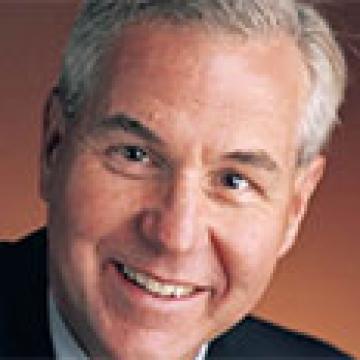Barack Obama: Family Life
When Barack Obama celebrated America’s racial and cultural diversity during his active political and presidential career, he spoke from a lifetime of personal experience. In The Audacity of Hope, he wrote: “As the child of a black man and a white woman, someone who was born in the racial melting pot of Hawaii, with a sister who’s half-Indonesian but who’s usually mistaken for Mexican or Puerto Rican, and a brother-in-law and niece of Chinese descent, with some blood relatives who resemble Margaret Thatcher and others who could pass for Bernie Mac, so that family get-togethers over Christmas take on the appearance of a UN General Assembly meeting, I’ve never had the option of restricting my loyalties on the basis of race, or measuring my worth on the basis of tribe.”
Obama married Michelle LaVaughn Robinson on October 3, 1992. Their first daughter, Malia Ann, was born on July 4, 1998, and their second daughter, Natasha, known as Sasha, was born on June 10, 2001. Both Michelle and the Obamas’ two daughters were born in Chicago and, until moving to Washington, DC, on January 5, 2009, two months after Barack Obama was elected president, they had spent almost their entire lives there. The Obamas chose to send their daughters to Sidwell Friends School, Sasha initially as a second-grader at the school's Bethesda, Maryland, elementary school campus and Malia as a fifth-grader at its middle school campus in Washington. The Obamas were accompanied to Washington by Michelle's mother, Marian Shields Robinson, whom they invited to live with them in the White House and who did so for all eight years of the Obama presidency. Robinson is the only surviving parent of either Barack or Michelle Obama.
Other close family members include Michelle Obama's brother, Craig Robinson, who coached the Oregon State University men’s basketball team until 2014 before beginning a broadcast career with ESPN, and Barack Obama's half-sister Maya Soetoro Ng. Ng was born in 1970 in Indonesia, the daughter of Obama's mother and her second husband, Lolo Soetoro. Growing up, Barack Obama’s family influenced his values in ways that later shaped his political philosophy. “Empathy is at the heart of my moral code ... ,” he wrote in The Audacity of Hope, “a call to stand in somebody else's shoes and see through their eyes. Like most of my values, I learned about empathy from my mother.” As a result, Obama is “angry about policies that consistently favor the wealthy and powerful over average Americans, and insist[s] that government has an important role in opening up opportunity to all.”
During his final year as president, Obama consulted with a wide range of formal and informal advisers about life after the presidency, which began on January 20, 2017. In March 2016, Obama said that he and his family would remain in Washington, DC, at least until Sasha finished high school in 2019. In May 2016, the White House announced Malia’s decision to attend Harvard University, starting in the fall of 2017 after she took a gap year between graduating from high school and beginning college. The Obamas rented and then bought a house in the prestigious Kalorama section of northwest Washington.
Just 55 years old when his second term ended, Obama announced shortly before leaving office that as a former president, he and former Attorney General Eric Holder would focus on helping Democrats win control of more of the state legislative houses that will shape the redistricting process after the 2020 census. He also hoped to cement his legacy and give back to his adopted hometown of Chicago through the development of the Obama Presidential Center. Located in the South Side, the center will focus on civic engagement and community development.
Obama also said that although he intended to play a restrained role in national politics, he would speak out “when I think our core values may be at stake,” including matters involving “systematic discrimination,” “obstacles to people being able to vote,” “institutional efforts to silence dissent or the press,” and “efforts to round up kids who have grown up here . . . and send them someplace else, when they love this country." Applying this rubric, Obama criticized his successor, President Donald J. Trump, ten days after leaving office for his travel ban, which attempted to limit entry to the United States by refugees and residents of seven majority-Muslim countries.

